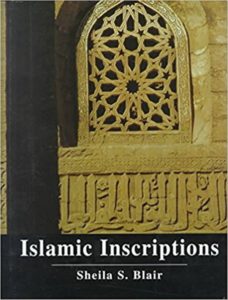
Islamic Inscriptions
Sheila Blair
Edinburgh University Press (1998)
Rs4,965
The first object created by God, according to early Muslim commentators, was the pen, which He used to chronicle events to come. The word, in its various manifestations, is central to the Islamic faith. Surely a reflection of this centrality, profuse inscriptions mark countless Islamic objects, from the humblest oil lamps and unglazed ceramics to the finest and most expensive rock crystals and jades. The inscriptions serve numerous functions: decorating, proclaiming ownership and patronage, proffering good wishes and proverbs, and spreading religious texts throughout the world. Aside from their aesthetic worth, these inscriptions provide a fascinating window onto a distant culture. In Islamic Inscriptions, Sheila S. Blair a wealth of stunning images and incisive commentary, while also providing the newcomer to Islamic civilization with a key to unlocking the mysteries of Islamic epigraphy. In addition to chapters devoted to the main types of inscription, detailing the development of their content and style, inscriptive techniques, and the motivations behind them, the book provides practical knowledge on finding, identifying, interpreting, researching, and recording inscriptions. The variety and clarity of information presented makes Islamic Inscriptions an ideal reference for historians, curators, archaeologists, and collectors.
Sheila S. Blair is the Norma Jean Calderwood University Professor of Islamic and Asian Art and the Boston College and Hamad bin Khalifa Endowed Chair of Islamic Art, Virginia Commonwealth University.
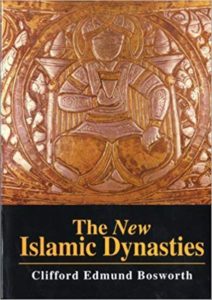
The New Islamic Dynasties
Clifford Edmund Bosworth
Edinburgh University Press, 2004
Rs3,845
Those coming to the study of Islamic history for the first time face a baffling array of rulers and dynasties in the many different areas of Islam. This book provides a comprehensive and reliable reference source for all students of history and culture. It lists by name the rulers of all the principal Islamic dynasties with Hijri and Common Era dates. Each dynastic list is followed by a brief assessment of its historical significance, and by a short bibliography.
C. Edmund Bosworth is Emeritus Professor at the University of Manchester.
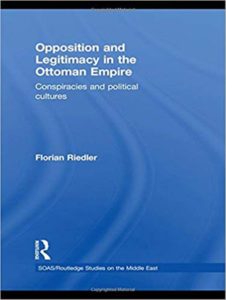
Opposition and Legitimacy in the Ottoman Empire: Conspiracies and Political Cultures
Florian Riedler
Taylor & Francis (2010)
Rs12,825
This book looks at opposition to the Ottoman government in the second half of the nineteenth century, examining a number of key political conspiracies and how these relate to an existing political culture. In his detailed analysis of these conspiracies, the author offers a new perspective on an important and well researched period of Ottoman history.
A close reading of police records on five conspiracies offers the opportunity to analyse this opposition in great detail, giving special attention to the different groups of political actors in these conspiracies that often did not come from the established political elites. Florian Riedler investigates how their background of class and education, but also their individual life experiences influenced their aims and strategies, their political styles as well as their ways of thinking on political legitimacy. In contrast, the reaction of the authorities to these conspiracies reveals the official understanding of Ottoman legitimacy.
The picture that emerges of the political culture of opposition during the second half of the nineteenth century offers a unique contribution to our understanding of the great changes in the political system of the Ottoman Empire at the time. As such, it will be of great interest to scholars of Middle Eastern history, political history, and the Ottoman Empire.
Florian Riedler is a historian specialising in Ottoman history of the nineteenth century. His current research interests are social and urban history of the Eastern Mediterranean, particularly Istanbul, as well as the history of migration in the Ottoman Empire.
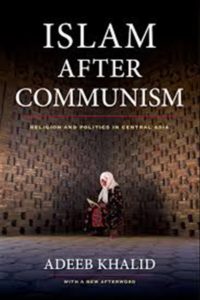
Islam After Communism: Religion and Politics in Central Asia
Adeeb Khalid
University of California Press (2014)
Rs2,891
Adeeb Khalid combines insights from the study of both Islam and Soviet history in this sophisticated analysis of the ways that Muslim societies in Central Asia have been transformed by the Soviet presence in the region.
Arguing that the utopian Bolshevik project of remaking the world featured a sustained assault on Islam that destroyed patterns of Islamic learning and thoroughly de-Islamized public life, Khalid demonstrates that Islam became synonymous with tradition and was subordinated to powerful ethnonational identities that crystallized during the Soviet period. He shows how this legacy endures today and how, for the vast majority of the population, a return to Islam means the recovery of traditions destroyed under Communism.
Islam after Communism reasons that the fear of a rampant radical Islam that dominates both Western thought and many of Central Asia’s governments should be tempered by an understanding of the politics of antiterrorism, which allows governments to justify their own authoritarian policies by casting all opposition as extremist. Comparing the secularization of Islam in Central Asia to experiences in Turkey, the former Yugoslavia, and other secular Muslim states, the author lays the groundwork for a nuanced and well-informed discussion of the forces at work in this crucial region.
Adeeb Khalid is Jane and Raphael Bernstein Professor of Asian Studies and History at Carleton College. He is the author of Islam after Communism: Religion and Politics in Central Asia and The Politics of Muslim Cultural Reform: Jadidism in Central Asia.
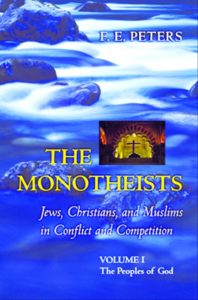
The Monotheists: Jews, Christians, and Muslims in Conflict and Competition
Francis E. Peters
Princeton University Press (2003)
Rs1,169
The world’s three great monotheistic religions have spent most of their historical careers in conflict or competition with each other. And yet in fact they sprung from the same spiritual roots and have been nurtured in the same historical soil. This book—an extraordinarily comprehensive and approachable comparative introduction to these religions—seeks not so much to demonstrate the truth of this thesis as to illustrate it. Frank Peters, one of the world’s foremost experts on the monotheistic faiths, takes Judaism, Christianity, and Islam, and after briefly tracing the roots of each, places them side by side to show both their similarities and their differences.
Volume I, The Peoples of God, tells the story of the foundation and formation of the three monotheistic communities, of their visible, historical presence. Volume II, The Words and Will of God, is devoted to their inner life, the spirit that animates and regulates them.
Peters takes us to where these religions live: their scriptures, laws, institutions, and intentions; how each seeks to worship God and achieve salvation; and how they deal with their own (orthodox and heterodox) and with others (the goyim, the pagans, the infidels). Throughout, he measures—but never judges—one religion against the other. The prose is supple, the method rigorous. This is a remarkably cohesive, informative, and accessible narrative reflecting a lifetime of study by a single recognized authority in all three fields.
The Monotheists is a magisterial comparison, for students and general readers as well as scholars, of the parties to one of the most troubling issues of today—the fierce, sometimes productive and often destructive, competition among the world’s monotheists, the siblings called Jews, Christians, and Muslims.

Francis E. Peters is Professor of Middle Eastern Studies, Hebrew and Judaic Studies, and History at New York University. His books include Islam: A Guide for Jews and Christians; Judaism, Christianity, and Islam; and The Children of Abraham (all Princeton).

